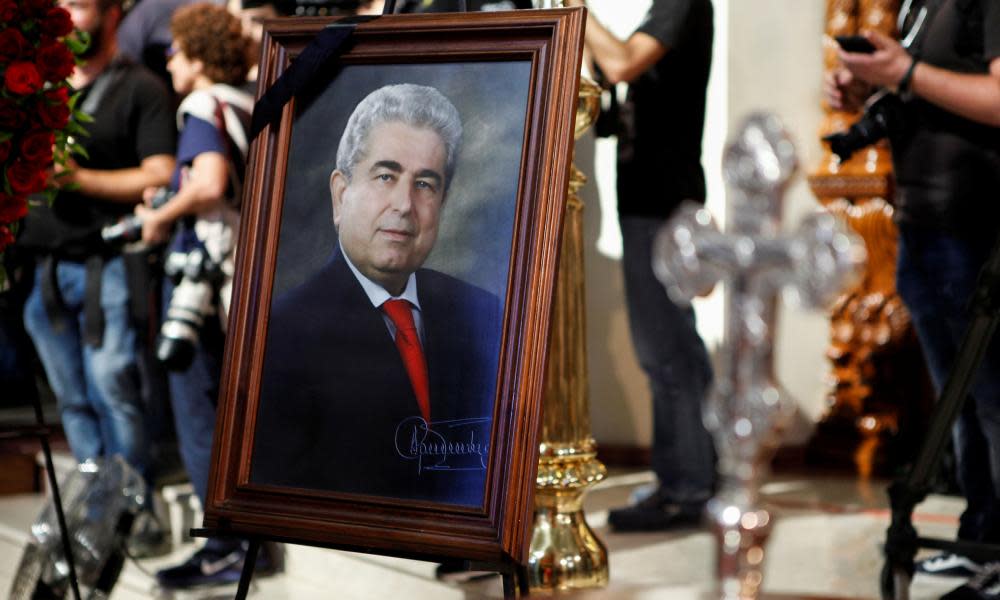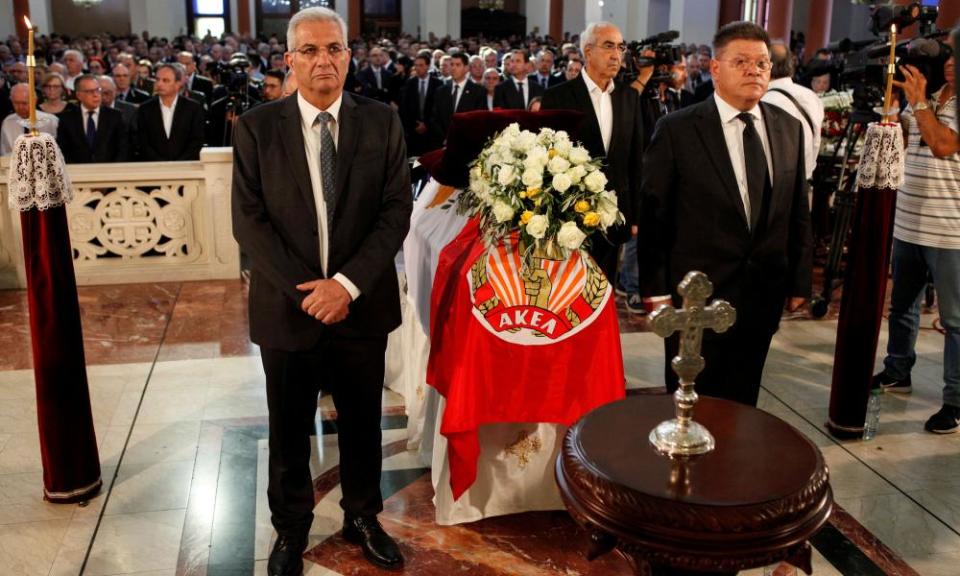Thousands attend Cyprus communist ex-president's funeral

Thousands have flocked to pay their respects to Demetris Christofias, Cyprus’ former president, and for five years the EU’s only communist leader, in a rare outpouring of grief on the Mediterranean island.
Christofias, who lead the Progressive party of the Working People (Akel) and was president from 2008 to 2013, received the emotional farewell as his body lay in state at the federation representing trade unions before being put to rest in a state funeral in Nicosia.
The leftwinger, who died at the age of 72, was an oddity in the west: a committed Marxist who was educated in Moscow and once described the collapse of the Soviet Union as a “crime against humanity”. Cuba was among the countries most admired by Christofias, who also advocated polices of rapprochement between Greek and Turkish Cypriots in an island divided by war.
Fellow “comrades” from around the world flew in to pay their respects in what will go down as one of the last events of its kind in Europe. The sight of thousands of cadres from Akel’s youth wing waving red flags emblazoned with the party’s hammer and clenched fist highlighted the paradox of political life in a country that, as a major offshore financial centre, is a magnet for the wealthy.
President Nicos Anastasiades, a conservative who attended the funeral with his entire cabinet, praised Christofias, the son of a builder, as “a political ‘opponent’ defined by patriotism, morality and honesty”.

The Greek Cypriot government declared three days of national mourning after the politician was pronounced dead on Friday, after being in critical condition in hospital since May.
Flags on public buildings flew at half-mast and Tuesday was declared a public holiday to mark the burial of a man who, as Cyprus’ sixth post-colonial president, oversaw a particularly turbulent period after his election in 2008.
On his watch, the country veered towards financial ruin, forcing Nicosia to seek a €10bn (£8.9bn) bailout from the EU and IMF after a banking crisis led to near-bankruptcy. Many in the island nation of 1.2 million blamed the economic policies pursued by Christofias, who determinedly expanded the welfare state, increasing salaries and pensions, despite international calls to scale back state spending.
In July 2011, a munitions blast at a navy base left 13 dead, debilitating the island’s main power plant and knocking out electricity supplies at the height of summer for many. The government’s perceived incompetence, storing munitions in the heat despite warning of a possible explosion, sparked weeks of protests and calls for Christofias’ resignation. The disaster was blamed for exacerbating the banking crisis in which thousands of ordinary Cypriots lost bank holdings.
Alone among leaders at the time, Christofias enjoyed good relations with Turkish Cypriots, taking the unprecedented step of describing the minority “not as our enemies, but our brothers”.
Akel’s strong trade union links with the Turkish Cypriot community made many hope that Christofias could break the logjam in talks to reunite the island, divided since 1974, when a coup aimed at unifying Cyprus with Greece prompted Turkey to invade.
After his five-year term ended, he refused to seek re-election, acknowledging he had failed miserably. On Tuesday, Turkish Cypriots were out in force, crossing the checkpoints that divide the island to attend Christofias’ funeral.
Dr Nicos Trimikliniotis, a professor of sociology at the University of Nicosia, said: “Not since the death of our first president, Archbishop Makarios, have we seen such emotion and tears. Christofias was never meant to get where he got. He was a humble man who was unjustly blamed for so much on this island, like a banking crisis caused by the private sector, and what we have seen today is proof that ordinary people have not forgotten him.”

 Yahoo News
Yahoo News 
